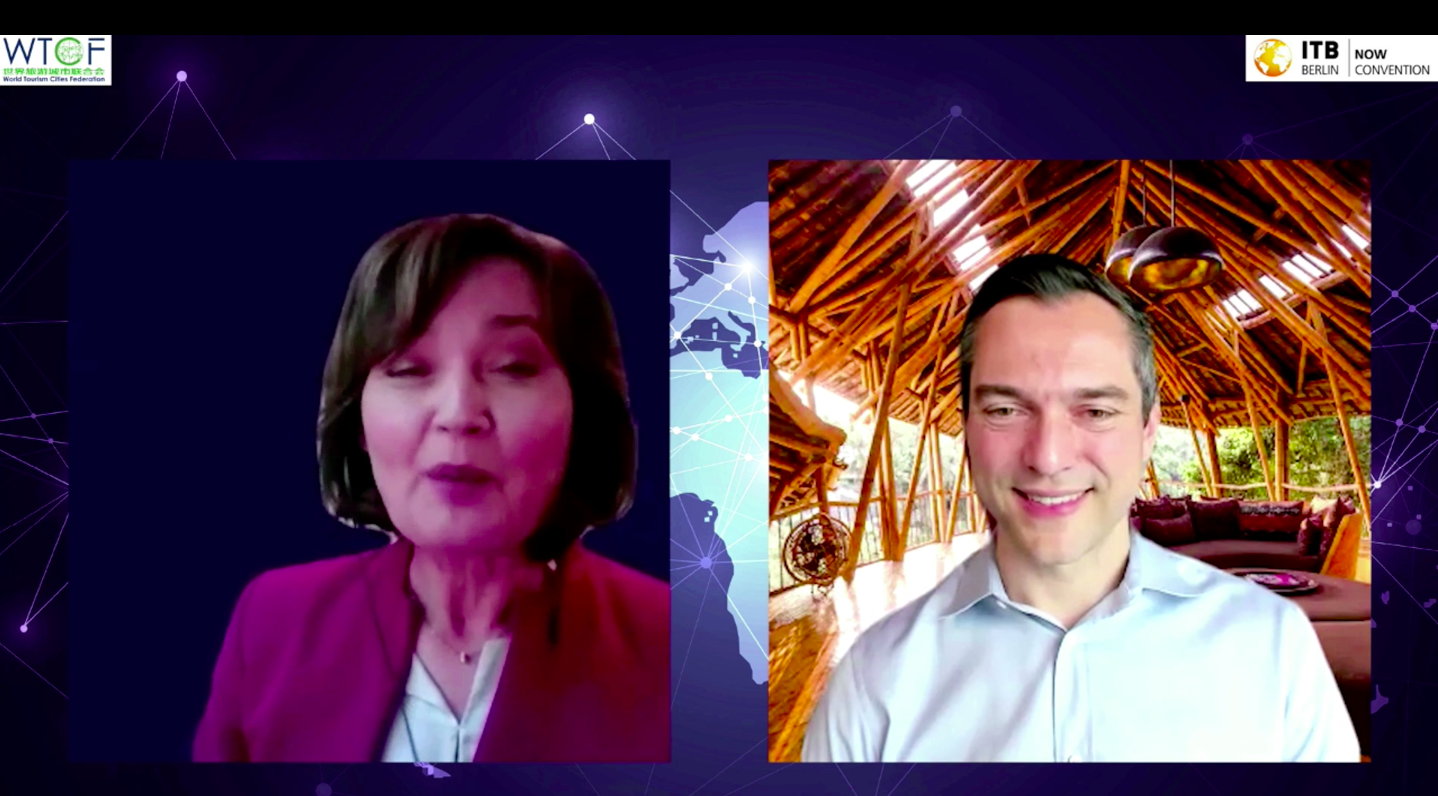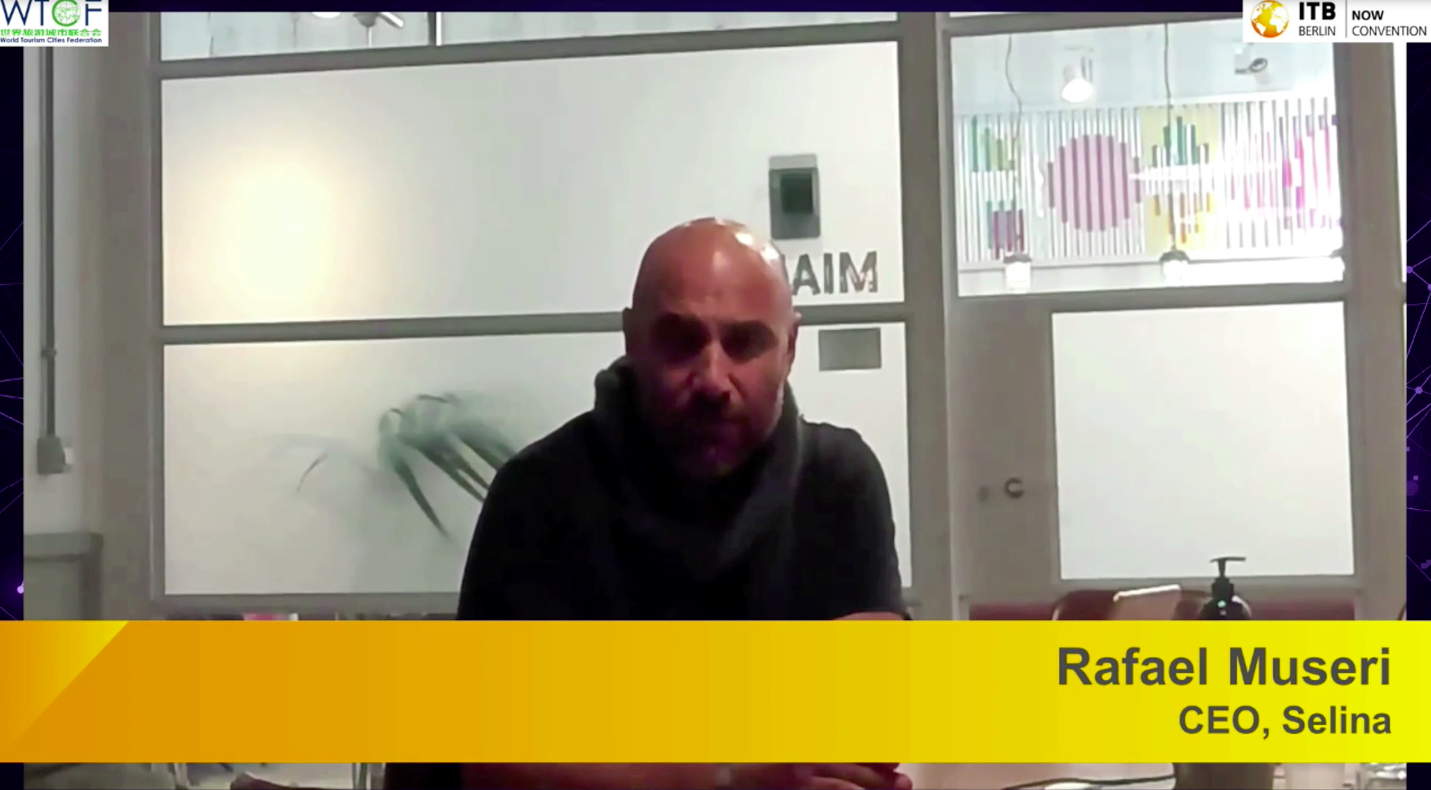News
Manchester, United Kingdom — 22-25 September 2009WYSE Archives
![]()
Hybrid hospitality: ITB Berlin NOW day two
In a keynote interview, Nathan Blecharczyk, Co-founder, CSO and Chairman of Airbnb China shared insights into the travel trends Airbnb is foreseeing and how the company has responded to the pandemic.
The pandemic has not quelled the thirst for travel, in fact, quite the opposite: there is pent-up travel demand. However, the way in which we travel is going to look different. There will be less flocking to tourist hotspots in crowded city centres and more importance placed on connecting with family and friends in a safe environment. Nathan added that many travellers view renting a private home a more comfortable alternative to staying in a hostel or hotel, surrounded by other people. The shift from working full time in an office to hybrid or fully-remote working will also fuel longer stays in more remote places, which in turn requires more accommodation options to be available. “Working and living is blending,” said Nathan.
Airbnb saw revenue dip by 30% in 2020, a figure which, according to Nathan was 20% lower than predicted. He explained that adaptability has been key in Airbnb’s response to the pandemic over the last twelve months. For example, by improving the functionality of the website search interface and allowing users to search for a flexible range of dates. “We continue to reinvent and innovate,” he said. “The financial results demonstrate the resiliency of the business model.”

Nathan Blecharczyk, Co-founder, CSO and Chairman, Airbnb China.
“Selina has been a workation platform from day one.”
Rafael Museri, CEO of Selina took to the stage to discuss the future of workation and longstay, and how Selina’s hybrid hospitality model is ready to take on the challenge.
From the get-go, Selina made its brand about work, play and stay. From the first opening in Panama in 2014, co-working spaces have been a part of Selina’s DNA, as it tapped in early to the digital nomad trend. Today, each of its 100+ hostels has a dedicated space from which travellers can work while staying at the property.
The pandemic has only served to push this model further. Rafael explained that Selina is now investing more into the co-working spaces, increasing their size in the more remote locations as people spend more and more time in less-populated areas. In urban locations, the co-working spaces are being reduced. In fact, Selina’s plans for growth and expansion are heavily focussed on remote locations: reducing urban properties and betting on 85% of new properties being in secondary tourist destinations.
Like all other youth accommodation providers, Selina has had to deal with lockdowns, borders closing and changing travel restrictions. “Selina is an experience-driven brand,” said Rafael. “And our customers need full flexibility.” The subscription package that Selina introduced in 2020 allows just this; with a single pass, travellers can effectively ‘lockdown-hop’ and stay (and work) in any Selina globally. Rafael attributes a lot of the brand’s success to quick execution and turnaround, as by swiftly reacting to new situations Selina is able to adapt to the needs of its guests. For now, Selina is setting its sights on expanding in Brasil, Southeast Asia, Mexico and Spain – and Israel, thanks to its highly efficient vaccination scheme.

Rafael Museri, CEO of Selina.
Join WYSE Travel Confederation
If you’d like to join WYSE Travel Confederation and benefit from new connections, free access to industry research, informative webinar sessions, discounts on industry events and brand exposure within the youth and student travel industry, click below to view our membership options and find out more.
